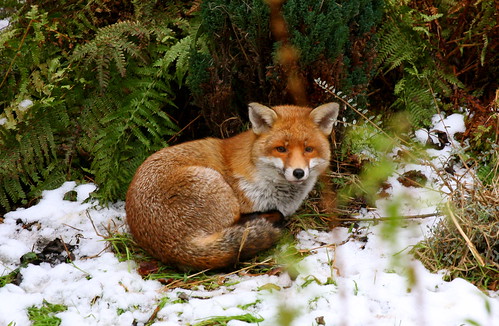The RSPB has warned that British wildlife is facing an emergency in the face of the longest period of freezing weather for almost 28 years and the prospect of it continuing well into next week. Birds are most affected as they are finding it impossible to feed, as the ground and many water bodies are frozen solid.
Mark Avery, the RSPB’s director of conservation described the situation as “a wildlife emergency… The long frozen period is even beginning to resemble the winter of 1962-63, which did more damage to Britain’s birds than anything else in our lifetimes.” At the end of that winter, the coldest in the UK in the 20th century, many populations of common birds such as wrens had plummeted to tiny levels, and rare birds were hit even harder: when spring 1963 came, only 11 pairs of Dartford warblers were left in England.
As a result the RSPB is appealing to people everywhere to put out food for birds in their gardens, but it is also going further: for the first time it is attempting emergency feeding for three rare and recovering species: Dartford warbler, found on heathlands, which will be fed on mealworms left on low-level bird tables in Suffolk and Dorset; the cirl bunting, found on farmland in south Devon, which will be fed on grain; and the bittern, to be fed on sprats. More here from The Independent
Meanwhile The Telegraph reports a remarkable 140% increase in sales of wild bird feed at Tescos as Britons pile their bird table high. And finally the RSPB is calling on everyone who enjoys being out in the countryside to take extra care not to disturb flocks of wildfowl and wading birds, during this exceptionally cold spell. Birdwatch


